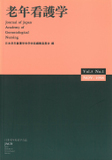Japanese
English
- 販売していません
- Abstract 文献概要
- 参考文献 Reference
目的:女性尿失禁者の多くは腹圧性,切迫性または混合性である.尿失禁の症状の治療または改善と関連し,自己効力感が考えられる.本研究は,コンチネンス効力感を測定する尺度の作成,およびその信頼性,妥当性,有効性を検討することを目的とした.
方法:対象者は腹圧性尿失禁(または混合性)の症状があり,現在医療機関に受診していない24歳から85歳までの女性222名(平均年齢51.5歳)であり,コンチネンス効力感予備スケール,一般性自己効力感,抑うつ感を自記式質問紙郵送法によって検討した.
結果:コンチネンス効力感予備スケールの暫定項目に対する分析の結果,説明率59%の2因子の構造をもち,因子負荷量0.5以上であったのは16項目であった.コンチネンス効力感の得点分布は22-160点(平均±標準偏差は101.7±27.9)であった.専門家による妥当性は高く,内的一貫性を表すCronbach Alphaは0.893であり,Test-Retest法による信頼性も信頼係数0.759であった.
結論:以上のことより,16項目からなる尿失禁者のコンチネンス効力感スケールは,信頼性があり,妥当性をもつものだと判断した.
Most of people who are urinary incontinent have one of stress incontinence, urgency incontinence, or mixed of both.
The theoretical background in the development of CSES (Continence Self-Efficacy Scale) is based on Bandura's social learning theory. That is, people with high self-efficacy will choose to perform more challenging tasks and accomplishment for the treatment or improvement of incontinence.
To develop and test reliability and validity of CSES, self-administered-postal questionnaire was sent. The sample consists of 222 women in urinary incontinence whose average age was 51.5 years. CSES-Incomplete Form, General Self-Efficacy Scale, GDS-Short form were surveyed. CSES-Incomplete Form had 2 factors to explain 59%and 16 of 20 items were above 0.5 in factor loading.
The range of Continence Efficacy score was 22 to 160 (Mean±SD=101.7±27.9). In Test-retest, reliability coefficient was 0.759 (p<0.001) and Cronbach Alpha was 0.893.
Therefore, we conclude this 16-item measure of CSES is valid and reliable to evaluate their confidence to continence.
Copyright © 1998, Japan Academy of Gerontological Nursing All rights reserved.


